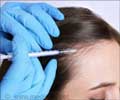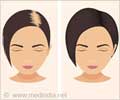Medical Hair Restoration
Medical hair restoration works with drugs taken through the mouth (oral) or applied in the place of hair loss (topical). Drugs work better when you are thinning and not yet bald. If your baldness has progressed to the shiny-scalp stage, it means your hair follicles are dead and drugs will not work for you – you will have to try surgery supplemented with drugs to see new hair.
Here are the medical treatments most doctors treating hair loss prescribe:-
- Minoxidil (topical treatment)
- Oral medicines for hair loss
- Laser comb
Minoxidil- was originally developed for high blood pressure. When people treated with minoxidil reported hair growth as a side effect, the medicine began to be used specifically to treat hair loss. Minoxidil is a vasodilator, and works by increasing blood supply to the roots of hair. This drug is the main effective ingredient in hair loss solutions like Rogaine.
Minoxidil is applied to the scalp as a lotion once or twice a day. Depending on the brand and concentration your doctor prescribes, it might be greasy and not look good, but it works for most people. Concentrations from 2% up to 12% are available. The higher concentrations need a doctor’s prescription and carry a higher risk of facial hair growth – so be careful and keep consulting with your doctor when you use it.
Minoxidil shows results within six months for most people, and it is more effective for women than it is for men. For women, the hair growth stimulated by minoxidil is often permanent, and continues even after the woman stops the medicine. Men, on the other hand, tend to lose the hair they have grown once they stop applying the solution. If you have not seen any new growth after one year of using minoxidil, you are among the small number of people it does not work for. In this case, you need to switch to a higher concentration of the drug, or combine it with another drug, or try out some other treatment.
Minoxidil is often combined with other topical medicines to make it more effective. While minoxidil dilates blood vessels to increase blood supply to the scalp, these drugs have other effects that work synergistically to stop hair fall. Tretinoin, a form of vitamin A, promotes cell growth and makes hair grow for a longer time (technically, it lengthens the anagen phase), nicotinate and liposomes (usually added to minoxidil solutions) helps the absorption of minoxidil, and azelaic acid and saw palmetto (a palm tree extract) inhibit the production of dihydrotestosterone (DHT), the testosterone derivative that causes hair to fall.
Oral medicines are used alongside topical treatments to stop hair fall and promote hair growth.
Finasteride (the main ingredient in Propecia) inhibits the formation of 5-alpha reductase, which helps DHT to form in the hair roots and leads to the process of miniaturizing hair. Finasteride is a pill that is usually taken at a dosage of 1 mg per day. Side effects of finasteride include a reduced sex drive and sometimes problems achieving erection for men. Usually, stopping the drug will remove the side effects. Dutasteride works much like finasteride.
IMPORTANT: finasteride is for men. Pregnant women who take finasteride risk harming their unborn male babies because the drug interferes with the development of the sexual organs.
For women, low-androgen index birth control pills can help hair grow. Susceptible women taking high-androgen index birth control pills may experience severe hair fall and need to stop or switch to low-androgen index pills.
Laser Combs: Laser combs like the HairMax device use low-level laser light to supposedly heal and stimulate the scalp. The comb parts the hair so the light reaches the scalp, and you hold the comb over one area till it beeps, when you move it to a different area, slowly moving it all over your head. The comb reduces problems like dandruff, and actually stimulates hair growth. The HairMax laser comb has been approved by the FDA since 2007, but its efficacy is still disputed among doctors treating hair loss.









